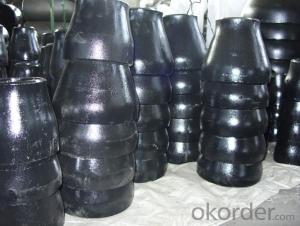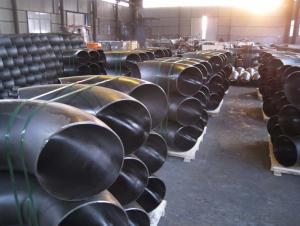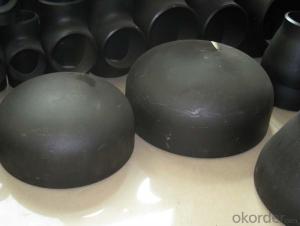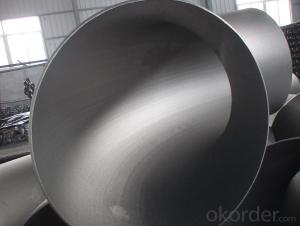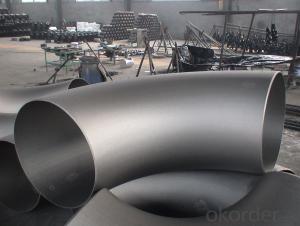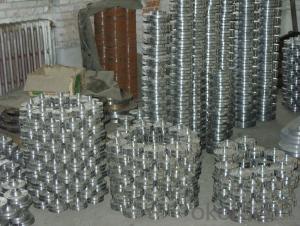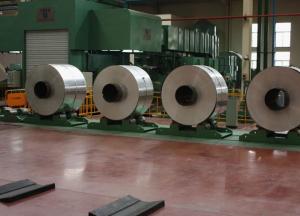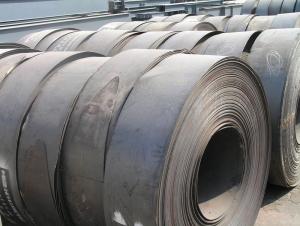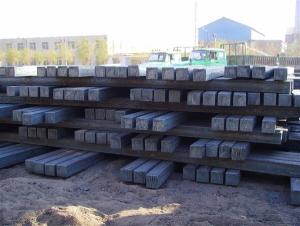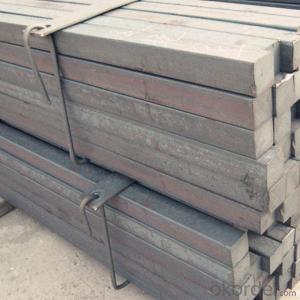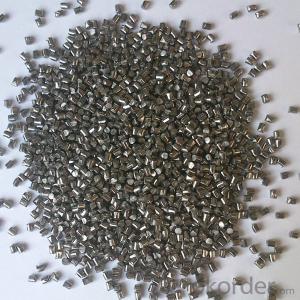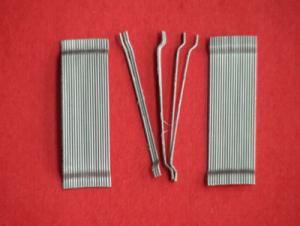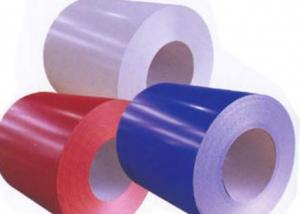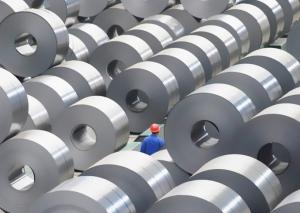Carbon Steel Pipe BEND 90DEG
- Loading Port:
- China Main Port
- Payment Terms:
- TT OR LC
- Min Order Qty:
- -
- Supply Capability:
- -
OKorder Service Pledge
OKorder Financial Service
You Might Also Like
Specifications
pipe fitting elbow
Certificate:ISO:9001-2000
New material,completely meet asme and din standard
Best price
1. type: AISI ASTM A234 WPB BW Con Elbow
2. Size: 1/2"-48"(1/2"-24"is seamless and 26"-48"is welded)
3. Wall thickness: sch10-160, STD, XS, XXS
4. Material: A234WPB, A420WPL6, A420WP5, WP11, WP12, WP22, etc
5. Welding line: seamless
6. Angle of bend: 30, 45, 90, 180degree
7. Bending radius: SR, LR
8. Standard: ANSI B16.9, JIS, SB, DIN, GB
9. Surface treatment: black paint, vanis paint, black rust-proof oil,
transparent oil, hot galvanizing
10. Application: petroleum, electricity, chemical, natural gas, metallurgy,construction,
shipbuilding and other fields because of its high pressure, high temperature, etc
11. connection: welding
12. technics:forged
13.Certificate:ISO9001 - 2000, CE, SGS, etc.
14. packaging: wooden case, pallet, container or in accordance with the
requirement of customers
15. Principle: quality fist, customer first, credit first
16. payment: L/C T/T
17. delivery time: 7-25 days after payments
18. Notes: the bevel can be made in accordance with the special requirements
of the customers
19. Others: we can also produce the products according to the requirements
of the customers
The main production:
1. PIPE FITTINGS: elbows, tees, bends, reducers, cap, flanges and sockets etc.
2. PIPE: bult welded pipes, seamless pipes, threaded pipes, etc.
We sincerely welcom customers at home and abroad to visit us and seek common development.
- Q:What are the different types of steel meshes and their uses?
- There are various types of steel meshes available, each with its specific uses. Some common types include welded wire mesh, expanded metal, and woven wire mesh. Welded wire mesh is created by welding intersecting wires to form a grid pattern, commonly used in construction, fencing, and industrial applications. Expanded metal is produced by cutting and stretching a flat metal sheet, offering strength and versatility for applications like walkways, grating, and filtration. Woven wire mesh involves weaving wires together, resulting in a flexible and durable material used in screens, sieves, and security applications. These different types of steel meshes cater to a wide range of uses in different industries based on their specific characteristics and properties.
- Q:How is steel sheet metal fabricated?
- Steel sheet metal is fabricated through a process called sheet metal fabrication, which involves cutting, bending, and shaping steel sheets to create various products or components. This can be done using various techniques such as shearing, punching, laser cutting, or plasma cutting to cut the steel sheets into the desired shape. Bending is then carried out using press brakes or other bending tools to give the sheets the required angles and curves. The final step involves assembling or joining the fabricated pieces using welding, riveting, or other joining methods to create the desired steel sheet metal product.
- Q:What are the common types of steel products used in the marine industry?
- The common types of steel products used in the marine industry include structural steel, marine grade stainless steel, and steel plates for shipbuilding.
- Q:How is steel used in the production of elevator systems?
- Steel is used in the production of elevator systems for its strength and durability. It is used to construct the elevator car, shaft, and supporting infrastructure, providing a sturdy framework for safe and efficient vertical transportation. Additionally, steel is often used for the cables and pulleys that enable the elevator to move and carry heavy loads, ensuring reliable and smooth operation.
- Q:What are the different types of steel wire ropes and their uses in marine applications?
- There are several types of steel wire ropes used in marine applications, each with its own specific use. Some common types include galvanized wire ropes, stainless steel wire ropes, and non-rotating wire ropes. Galvanized wire ropes are coated with a protective layer of zinc, making them resistant to corrosion and ideal for use in marine environments. Stainless steel wire ropes, on the other hand, are highly corrosion-resistant and are often used in applications where strength and durability are crucial, such as mooring lines or lifting equipment. Non-rotating wire ropes are designed to minimize twisting and spinning, making them suitable for tasks that require precise control and stability, such as crane operations. Overall, the choice of steel wire rope depends on the specific marine application and the desired characteristics of strength, corrosion resistance, and stability.
- Q:How are steel bars used in the reinforcement of bridges and flyovers?
- Steel bars are used in the reinforcement of bridges and flyovers to provide strength and stability to the structures. These bars are typically inserted into the concrete during construction to enhance the load-bearing capacity and prevent any potential cracking or failure. The steel bars, also known as rebar, act as a framework within the concrete, absorbing and distributing the loads and forces generated by the bridge or flyover, thus ensuring their structural integrity and durability.
- Q:How are steel pipes used in the transportation of natural gas?
- Steel pipes are used in the transportation of natural gas as they provide a reliable and durable means of transporting the gas over long distances. These pipes are designed to withstand high pressure and are resistant to corrosion, making them suitable for the transmission of natural gas. Additionally, steel pipes are able to maintain the integrity of the gas, ensuring minimal leakage and loss during transportation.
- Q:What are the different types of steel wire ropes and their uses?
- There are several types of steel wire ropes, including bright steel wire ropes, galvanized steel wire ropes, and stainless steel wire ropes. Bright steel wire ropes are commonly used in general applications where strength and flexibility are important, such as in cranes, elevators, and towing. Galvanized steel wire ropes are coated with zinc to protect against corrosion, making them suitable for outdoor and marine applications, such as in fishing nets, suspension bridges, and zip lines. Stainless steel wire ropes are highly resistant to corrosion and are used in harsh environments, such as in the marine industry, construction, and for architectural purposes like railings and balustrades. Each type of steel wire rope has its own unique properties and is chosen based on the specific requirements of the application.
- Q:What is the difference between carbon steel and stainless steel?
- The main difference between carbon steel and stainless steel lies in their composition and resistance to corrosion. Carbon steel contains a higher amount of carbon, making it stronger and harder but also more prone to rusting. Stainless steel, on the other hand, contains chromium which forms a protective layer on its surface, making it highly resistant to corrosion. Additionally, stainless steel is known for its aesthetic appeal and is often used in applications where hygiene and appearance are important, while carbon steel is commonly used in structural and industrial applications due to its strength and affordability.
- Q:What are the different types of steel products used in the manufacturing of electronics?
- Some of the different types of steel products used in the manufacturing of electronics include stainless steel, carbon steel, and electrical steel. Stainless steel is often used for its corrosion resistance and durability, particularly in components such as casings and connectors. Carbon steel is commonly utilized for structural components and enclosures due to its strength and affordability. Electrical steel, which includes silicon steel and nickel-iron alloys, is specifically designed for use in electromagnetic applications such as transformers and motors.
1. Manufacturer Overview |
|
|---|---|
| Location | |
| Year Established | |
| Annual Output Value | |
| Main Markets | |
| Company Certifications | |
2. Manufacturer Certificates |
|
|---|---|
| a) Certification Name | |
| Range | |
| Reference | |
| Validity Period | |
3. Manufacturer Capability |
|
|---|---|
| a)Trade Capacity | |
| Nearest Port | |
| Export Percentage | |
| No.of Employees in Trade Department | |
| Language Spoken: | |
| b)Factory Information | |
| Factory Size: | |
| No. of Production Lines | |
| Contract Manufacturing | |
| Product Price Range | |
Send your message to us
Carbon Steel Pipe BEND 90DEG
- Loading Port:
- China Main Port
- Payment Terms:
- TT OR LC
- Min Order Qty:
- -
- Supply Capability:
- -
OKorder Service Pledge
OKorder Financial Service
Similar products
New products
Hot products
Related keywords
